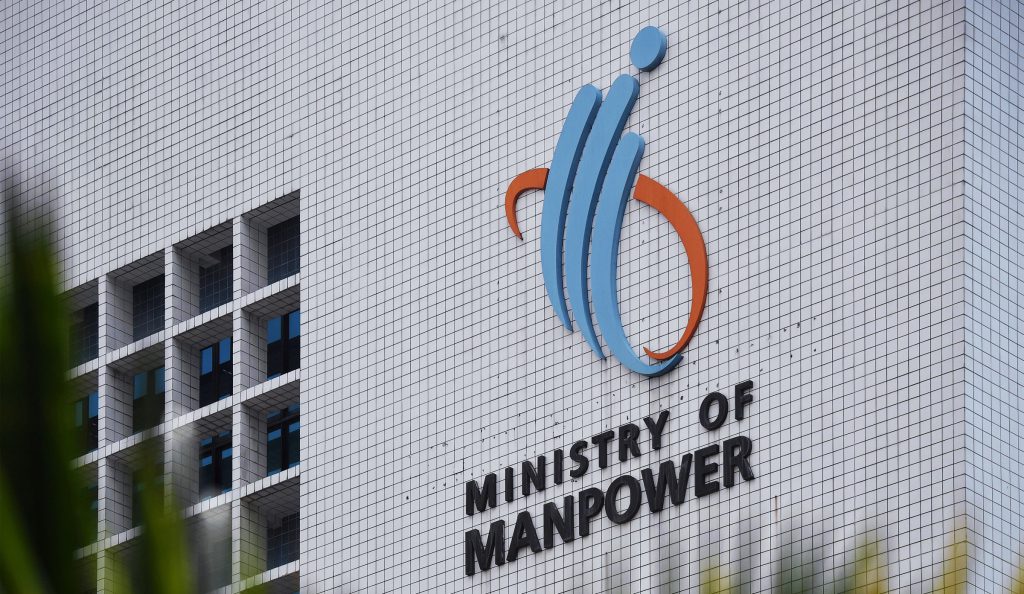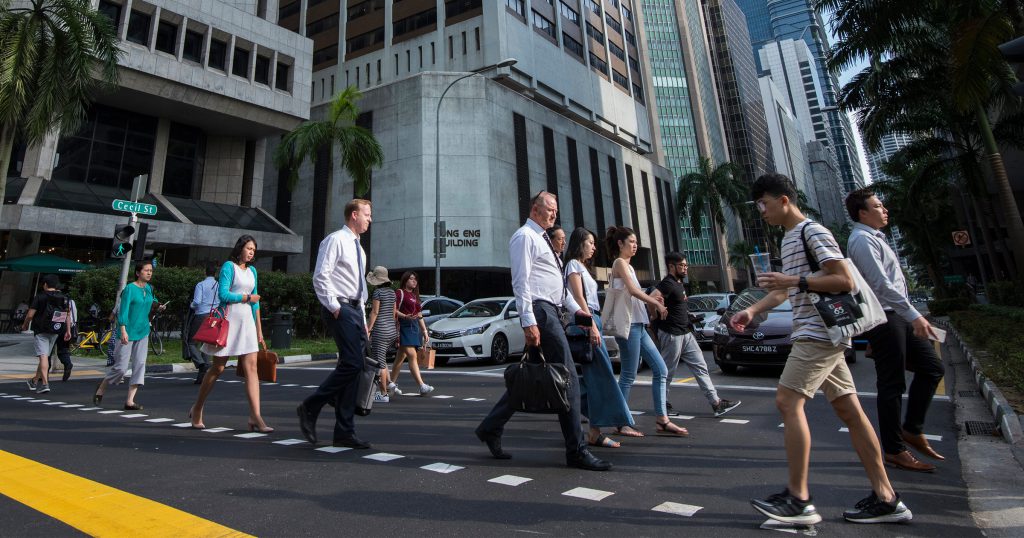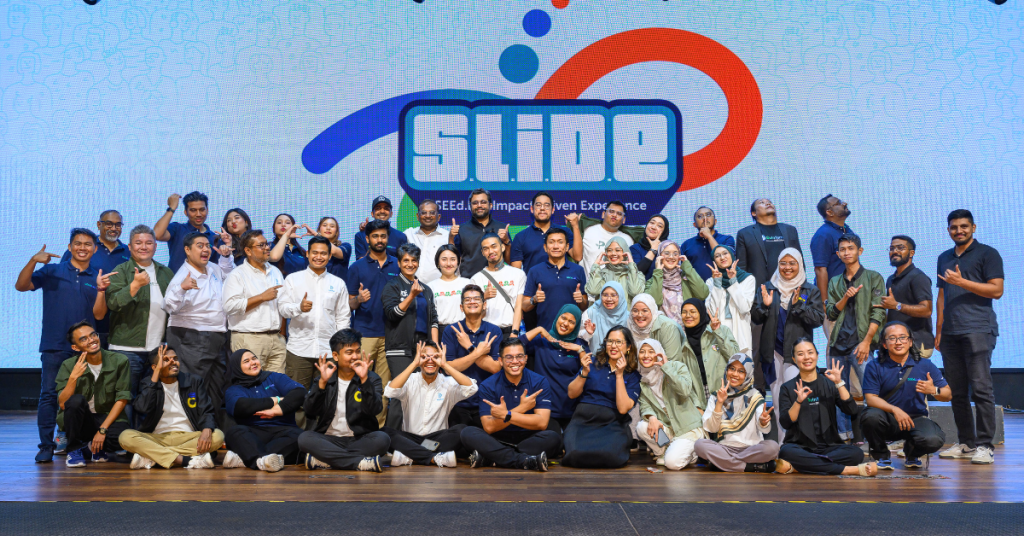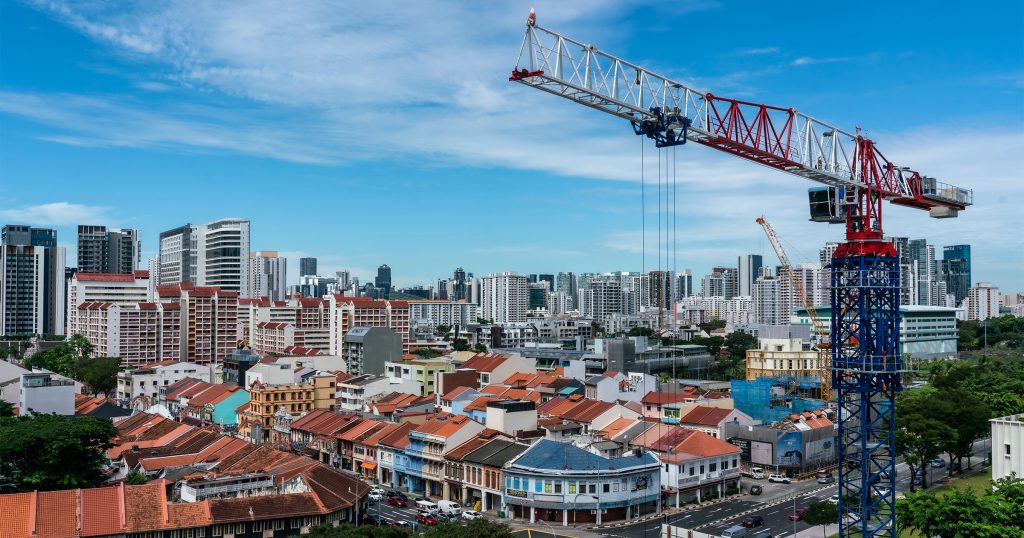Ministry of Manpower has just released its annual summary of the trends in job vacancies in Singapore, together with a list of the professions seeking the most positions that companies seek to fill.
The survey is very comprehensive, having covered private sector companies which employ at least 25 people and the public sector comprising government ministries and statutory boards.
A total of 16,800 establishments employing 2,168,900 employees responded to the survey, with a response rate of 89.0%, between 15 September 2023 and 19 December 2023.
Here’s the breakdown of the findings:
New job creation picks up
2023 was the best year for new job vacancies since 2018 when the figure was first reported. Nearly half, 47.3 per cent, were new positions.
The slight dip in 2022 is somewhat understandable, given the post-pandemic hiring spree, which was all about filling the jobs that were lost in the pandemic, but the bump vs. pre-pandemic levels shows high levels of optimism even as Singapore economy is now employing more people than ever.
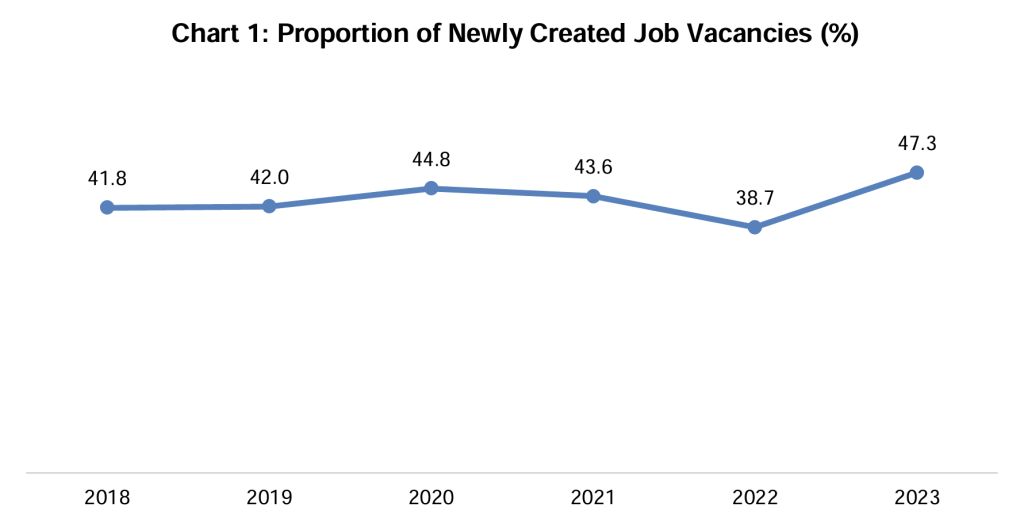
Where are those new jobs created?
Unsurprisingly, the industry with the highest proportion of new openings remains the ICT sector, which is forever hungry for more IT talent. Nearly three out of four openings were created over the past year. It’s no surprise then that even fresh graduates can expect starting salaries of $5000 to over $6000 per month.
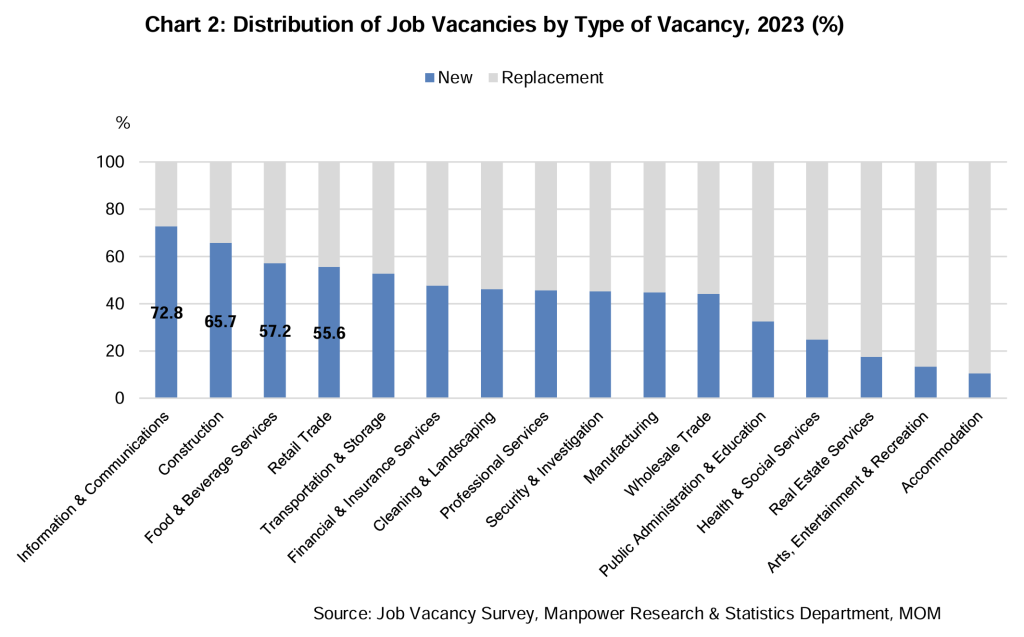
In second place comes the still booming construction sector, although, with cooling measures taking greater effect, this may taper off in the coming year or two.
Interestingly, food and beverage services and retail trade are also hiring more than they are simply replacing, followed closely by transportation and finance, the bedrock of the Singapore economy.
On the opposite end, real estate is showing signs of saturation, as is accommodation and arts & recreation, still seeking to fill the post-pandemic gaps, as travel to Singapore is back to 2019 levels and set to grow in the coming years.
PMETs in demand
It’s quite remarkable that as recently as 2017 non-PMET vacancies still outnumbered the PMET jobs on offer. Within a decade since 2014, the proportions have reversed, showing a progressing professionalisation and uplift of Singapore’s labour force, as more and more jobs require more advanced expertise (driven mostly by the tech sector).
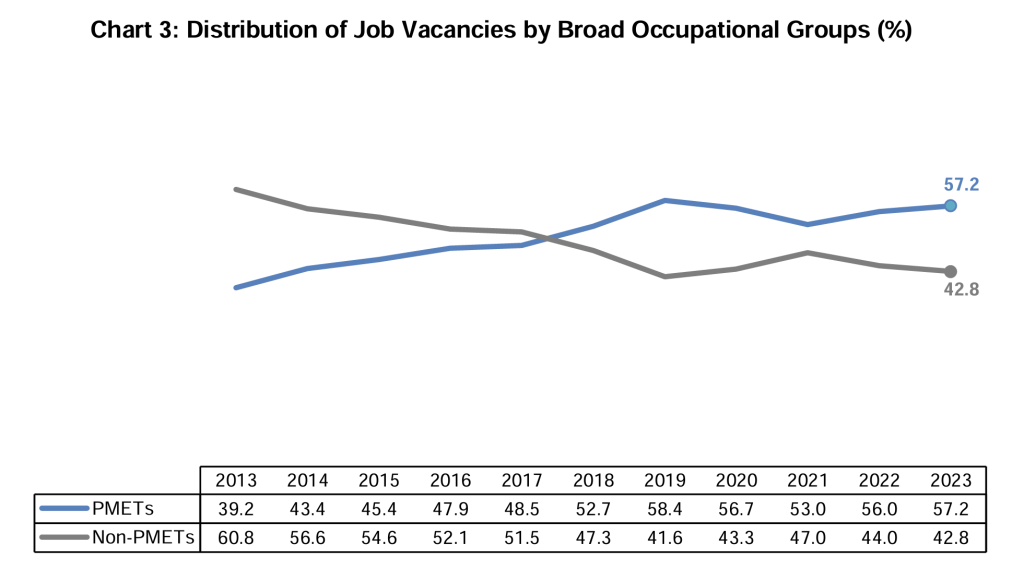
Obstacles to employment
We often hear that many seemingly good, decent jobs for professionals are picked up by foreigners, but there are certain reasons why local residents (citizens and permanent residents) either refuse or simply can’t fill them.
And, as it is often cited by employers, the main reasons are the lack of skills or experience, with insufficient pay being the cause in just 1/3rd of all cases of vacancies remaining on the market for more than six months.
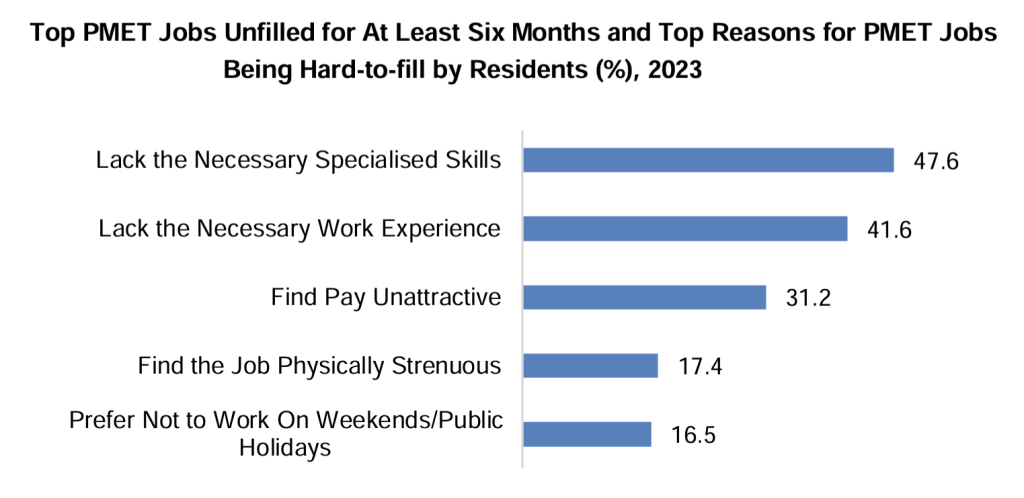
Degrees matter less and less
Reflecting global trends, another revolution in Singapore’s labour market is the rapid decline in the importance of academic qualifications.
Of course, this was never a major factor for most non-PMET jobs, but since 2017 it has very rapidly become a non-issue for PMET positions as well.
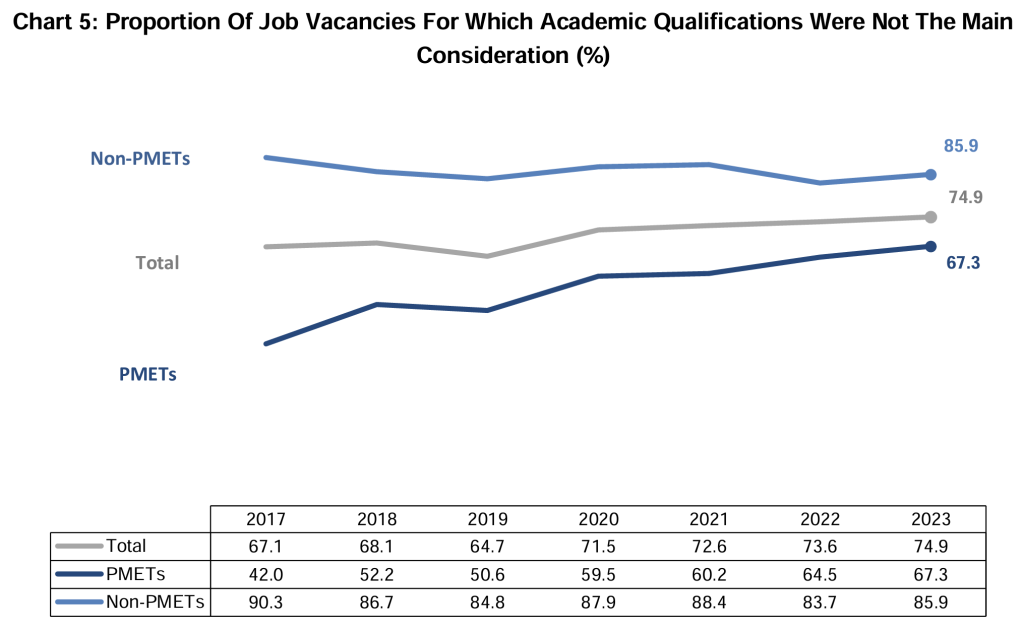
From just nearly 60 per cent seven years ago to just 33 per cent today — this is how rapidly the importance of your formal education has declined.
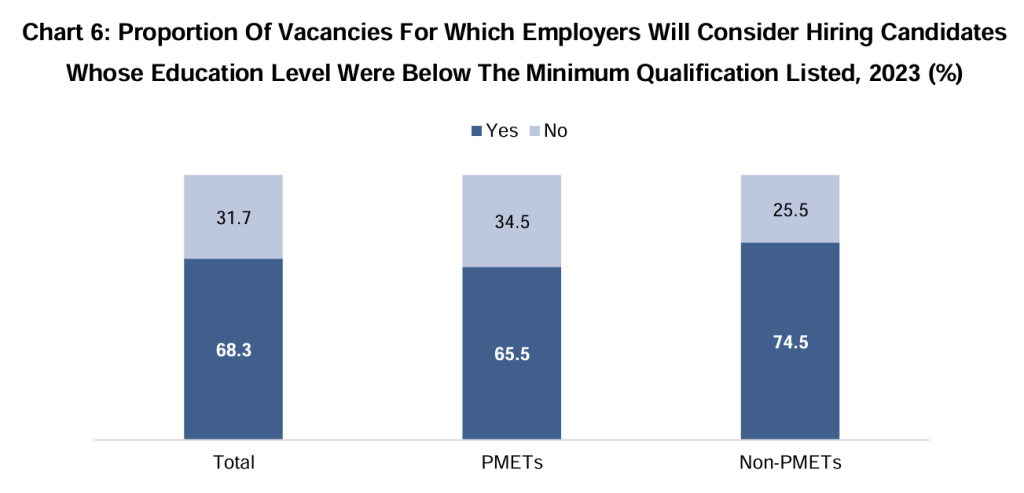
For two-thirds of all vacancies, even among professionals, employers will consider candidates who do not command the necessary basic education for the role, provided that they can offer other valuable traits. Businesses place greater emphasis on experience and real-life skills rather than paper qualifications, and that seems to be both fairer candidates and better for the economy.
Top vacancies with expected salaries
According to MOM, educational background is not the main consideration chiefly among software and media developers, management executives, business development managers, sales executives, and even some teaching and training professionals.
Incidentally, all of them are on the list below:
Top 10 PMET Vacancies
| Rank | Occupation | Range of wages offered |
| 1 | Software, Web & Multimedia Developer | $5,000 to $8,505 |
| 2 | Teaching & Training Professional | $3,080 to $8,580 |
| 3 | Commercial & Marketing Sales Executive | 3,000 to $4,200 |
| 4 | Management Executive | $2,400 to $6,250 |
| 5 | Budgeting & Financial Accounting Manager | $7,000 to $10,000 |
| 6 | Industrial & Production Engineer | $4,000 to $6,500 |
| 7 | Management & Business Consultant | $5,000 to $8,000 |
| 8 | Systems Analyst | $5,500 to $9,663 |
| 9 | Registered Nurse & Other Nursing Professional | $2,730 to $5,000 |
| 10 | Business Development Manager | $6,000 to $10,000 |
This proves that not only does the labour market reward skills and experience more than paper qualifications, but that education in Singapore should place greater emphasis on developing practical competences from a young age to future-proof the new generations for growing international competition.
After all, if you don’t evolve, you’re not only standing still—you’re falling behind.


